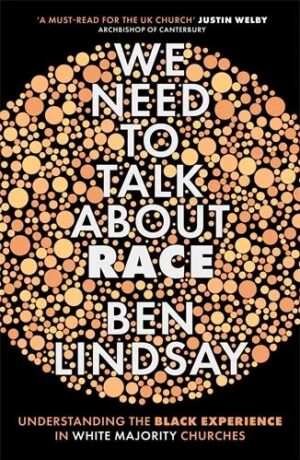



The problem is that society is being lied to. Racism is based on a lie. God created one race, one blood. That’s the human race. The very idea of the gospel is that we would be one. The world would know that we are Christian because of our oneness, and because of our love.
John M. Perkins
Watch this introductory video as Ben shares about Radical Solidarity and Church Leadership.
How are you feeling about the series so far? In what ways has it been helpful?
There was a moving example of radical solidarity in chapter five of Ben’s book which took place at a youth event called Newday. At the event, 7000 young people, the majority of whom were white and middle class, encountered a very difficult moment. A black teenager was stabbed to death in Peckham, South London hundreds of miles away and Joel Virgo who leads the event, cancelled the annual gathering for games and socialising and led the whole site – all 7000 young people and their youth leaders, in prayer for the family of the young boy who had been tragically killed. It was an emotional and spiritually powerful moment of unity and radical solidarity led by a white pastor based in Brighton – a city that has nowhere near the levels of knife crime as other major cities. Black, white and people of all races stood together to grieve, lament and to come before God in prayer.
What about this story encourages or challenges you and why?
Diversity is about bodies, inclusion is about culture.
DeRay McKesson, American activist and author
Ben recounts the comments of black worship leader Noel Robinson: ‘At a Soul Survivor event, I was invited to teach on music and the prophetic. At the last meeting I did for them, they invited me to lead a song on the main stage. When I came off the stage, the most profound thing happened. In a place where there were maybe 10,000 people, a young black kid came up to me and said, ‘I can be a worship leader.’ I responded by saying, ‘Why are you saying that? Of course you can be.’ He said, ‘You’re the first black worship leader I have ever seen.’
Reflect on this story as a group. The questions below may help.
Read Acts 6:1-7, and then the quote below from We Need to Talk about Race.
‘In Acts 6, the Greek Jews (the foreign minority culture) protested that their widows were not being fairly treated in comparison to those of the Hebrew Jews (the indigenous majority culture) in the distribution of food (v. 1)… In Acts 6 there is an incredible demonstration of unity and radical solidarity in the way the situation is resolved. The Greek- and Hebrew-speaking Jews come together and the leaders of the early Church appointed seven leaders to supervise the distribution of resources to those in need. What then occurred was intriguing. The Hebrew Jews were the dominant, majority culture, but it was the minority culture that was given authority and responsibility to lead and act in this area of distributing food to the widows.’
Read these quotes from We Need to Talk about Race.
‘For racial reconciliation to be achieved, for radical solidarity to be realised in the UK Church, black forgiveness of white racial wrongs cannot be the only answer. White confession and repentance also need to happen.’
‘Minority and majority culture were all in it together to solve the issue and a radical solidarity was achieved. The short-term immediate need was addressed but, also, there was increased meaningful authority given to the marginalised. Power structures based on race and culture were destabilised. At no point was the minority culture first told to forgive and reconcile; the onus fell on the majority culture to actively make the situation right.’
Discuss the issues raised in this session together. The following questions may help:
Pray for a forging of radical solidarity within your church community.
Pray for greater forms of representation in leadership and diversity of cultural expression.